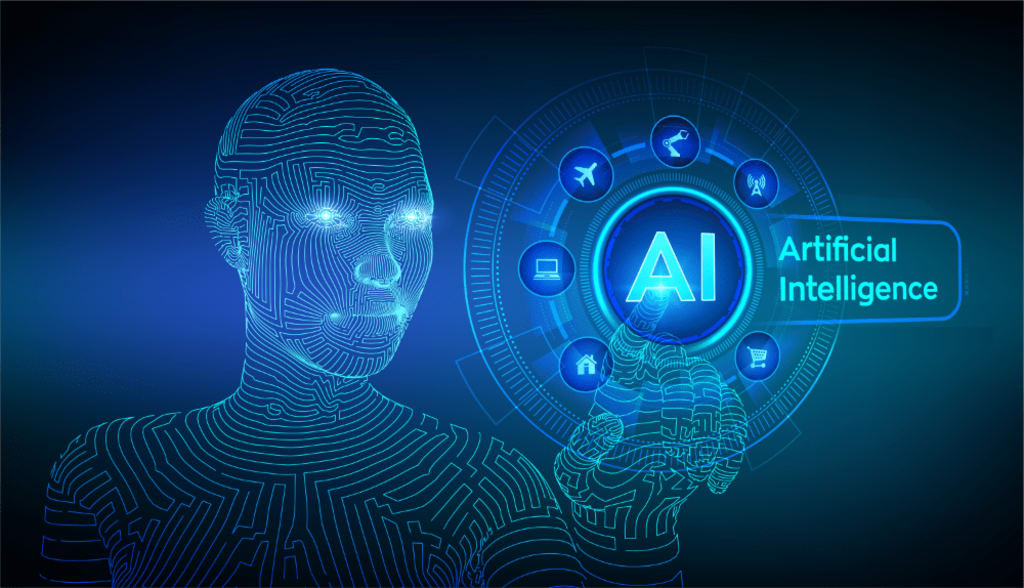Artificial Intelligence: The Future of Technology
Exploring the Benefits, Challenges, and Ethical Implications of AI in Today's World

Artificial Intelligence (AI) is a rapidly growing field in computer science that focuses on developing algorithms and computational models that allow computers to perform tasks that typically require human intelligence, such as understanding natural language, recognizing images and sounds, and making decisions. The goal of AI is to create machines that can think, reason, and learn, just like human beings.
AI has come a long way since its inception in the 1950s. In the early days, AI was limited to simple rule-based systems that performed basic tasks such as playing chess or solving mathematical problems.
However, with the advent of modern computing power, advances in algorithms, and the availability of large amounts of data, AI has now evolved into a sophisticated technology that is changing the way we live, work, and communicate.
One of the most important aspects of AI is its ability to learn from data. Machine learning is a type of AI that enables computers to learn from data without being explicitly programmed. Machine learning algorithms use statistical methods to analyze large amounts of data and identify patterns and relationships in the data. Once the algorithms have learned from the data, they can use this knowledge to make predictions about future data, automate tasks, and make decisions.
One of the most promising applications of AI is in the field of robotics. Robots equipped with AI can be programmed to perform a wide range of tasks, such as manufacturing products, exploring new environments, or even performing surgeries.
AI-powered robots are able to learn from their experiences and adapt to new situations, making them ideal for use in dynamic and unpredictable environments.
Another important area of AI is natural language processing (NLP), which focuses on enabling computers to understand and generate human language.
NLP is used in a variety of applications, including language translation, sentiment analysis, and text classification. AI-powered NLP systems are able to understand and respond to human language, making them ideal for use in customer service and support, as well as in other industries where human-computer interaction is important.
AI is also being used to solve complex problems in various fields such as finance, healthcare, and marketing. In finance, AI algorithms can be used to analyze market trends and predict stock prices, helping investors make informed decisions.
In healthcare, AI is being used to predict patient outcomes, diagnose diseases, and develop personalized treatment plans. In marketing, AI algorithms are being used to analyze consumer behavior and predict which products will sell best in certain regions, helping companies make informed decisions about where to focus their efforts.
Despite its many benefits, AI also poses significant challenges. One of the biggest challenges is ensuring that AI algorithms are fair and unbiased. AI algorithms are only as good as the data they are trained on, and if the data is biased, the algorithms will produce biased results. This is why it is crucial to carefully curate the data that is used to train AI algorithms and to use techniques such as data augmentation and oversampling to ensure that the algorithms are trained on a diverse and representative dataset.
Another challenge is the ethical implications of AI. As AI algorithms are increasingly being used to make important decisions, there are concerns about the potential for harm if the algorithms are biased or incorrect. It is crucial to ensure that AI algorithms are transparent and accountable, and that there is a clear understanding of how they make decisions.
In conclusion, Artificial Intelligence is a rapidly growing field in computer science that is transforming the way we live, work, and communicate. AI algorithms are designed to learn from data, automate tasks, and make decisions, and they are being used to solve complex problems in various fields.
Despite its many benefits, AI also poses significant challenges, including ensuring that algorithms are fair and unbiased and understanding the ethical implications of their use. As the field continues to evolve
About the Creator
Enjoyed the story? Support the Creator.
Subscribe for free to receive all their stories in your feed. You could also pledge your support or give them a one-off tip, letting them know you appreciate their work.





Comments
There are no comments for this story
Be the first to respond and start the conversation.